BUSINESS 3001 Chapter 06 The Political Economy of International Trade,100%
Document Content and Description Below
True / False Questions 1. Subsidies are a trade policy instrument. True False 2. Tariffs are the most complex instrument of trade policy. True False 3. Tariffs are the instrument that the GATT an... d WTO have been most successful in limiting. True False 4. In recent decades, a fall in subsidies, quotas, and voluntary export restraints has been accompanied by a corresponding fall in nontariff barriers. True False 5. Nontariff barriers include subsidies, quotas, voluntary export restraints, and antidumping duties. True False 6. Specific tariffs are levied as a proportion of the value of the imported good. True False 7. Ad valorem tariffs reduce the cost of imported products relative to domestic products. True False 8. Tariffs are largely pro-producer and anti-consumer. True False 9. Tariffs increase the overall efficiency of the world economy because a protective tariff encourages domestic firms to produce products more efficiently at home that, in theory, could be produced abroad. True False 10. Export tariffs are far less common than import tariffs. True False 11. The main gains from subsidies accrue to importers, whose international competitiveness is increased as a result of these subsidies. True False 12. Japan has a long history of supporting inefficient domestic producers with farm subsidies. True False 13. A direct restriction on the quantity of some good that may be imported into a country is a quota rent. True False 14. Quotas benefit consumers the most. True False 15. The Buy America Act specifies that government agencies must give preference to American products when putting contracts for equipment out for bid unless the foreign products have a significant advantage. True False 16. Administrative trade policies are bureaucratic rules that are designed to make it easy for imports to enter a country. True False 17. Dumping is variously defined as selling goods in a foreign market at below their costs of production, or as selling goods in a foreign market at below their “fair” market value. True False 18. Antidumping policies are designed to punish foreign firms that engage in dumping industrial waste into the environment. True False 19. The fair market value of a good is normally judged to be lesser than the costs of producing that good. True False 20. Countries sometimes argue that it is necessary to protect certain industries because they are important for national security. [Show More]
Last updated: 2 years ago
Preview 1 out of 64 pages
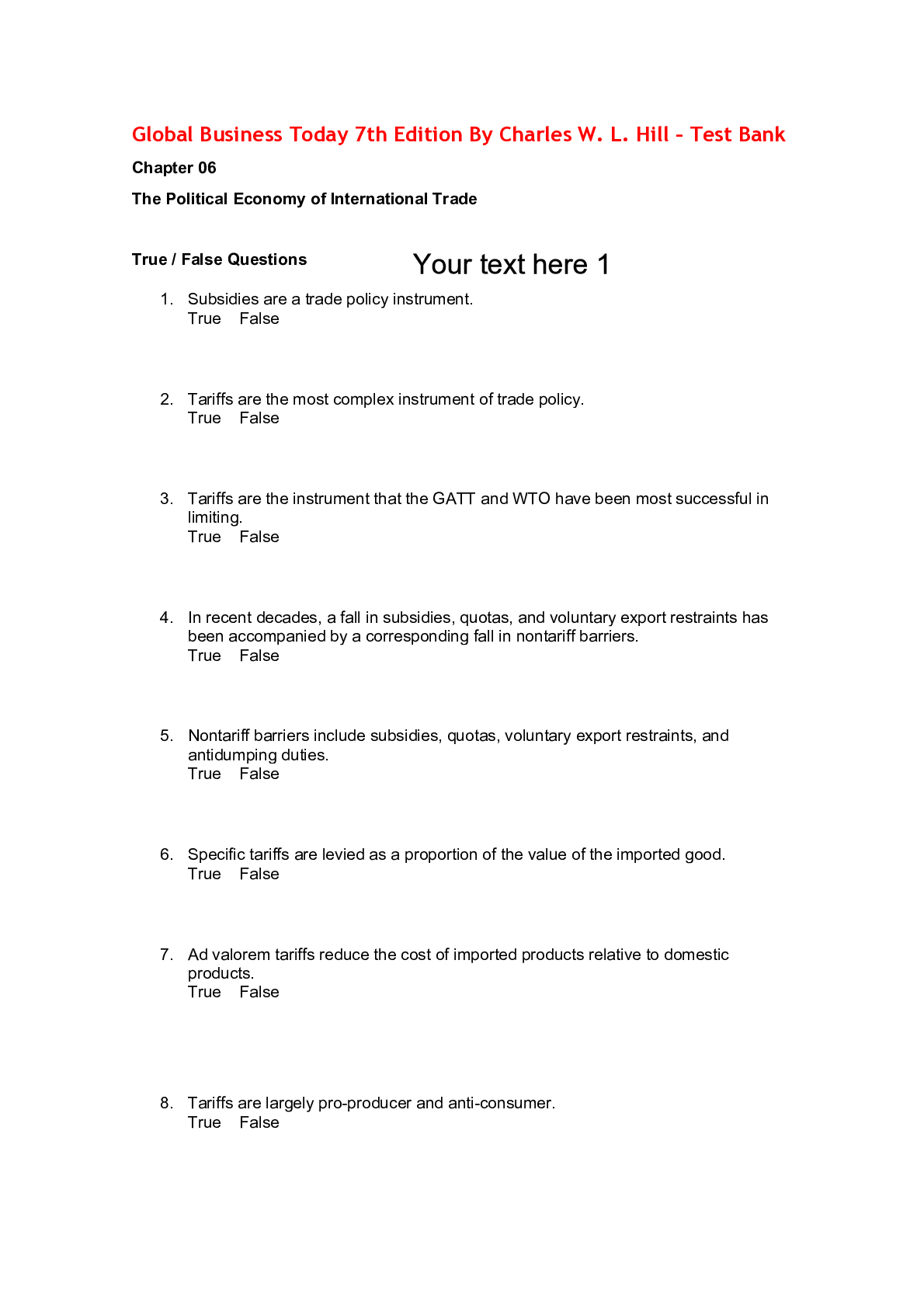
Buy this document to get the full access instantly
Instant Download Access after purchase
Buy NowInstant download
We Accept:

Reviews( 0 )
$18.00
Can't find what you want? Try our AI powered Search
Document information
Connected school, study & course
About the document
Uploaded On
Nov 08, 2022
Number of pages
64
Written in
Additional information
This document has been written for:
Uploaded
Nov 08, 2022
Downloads
0
Views
40

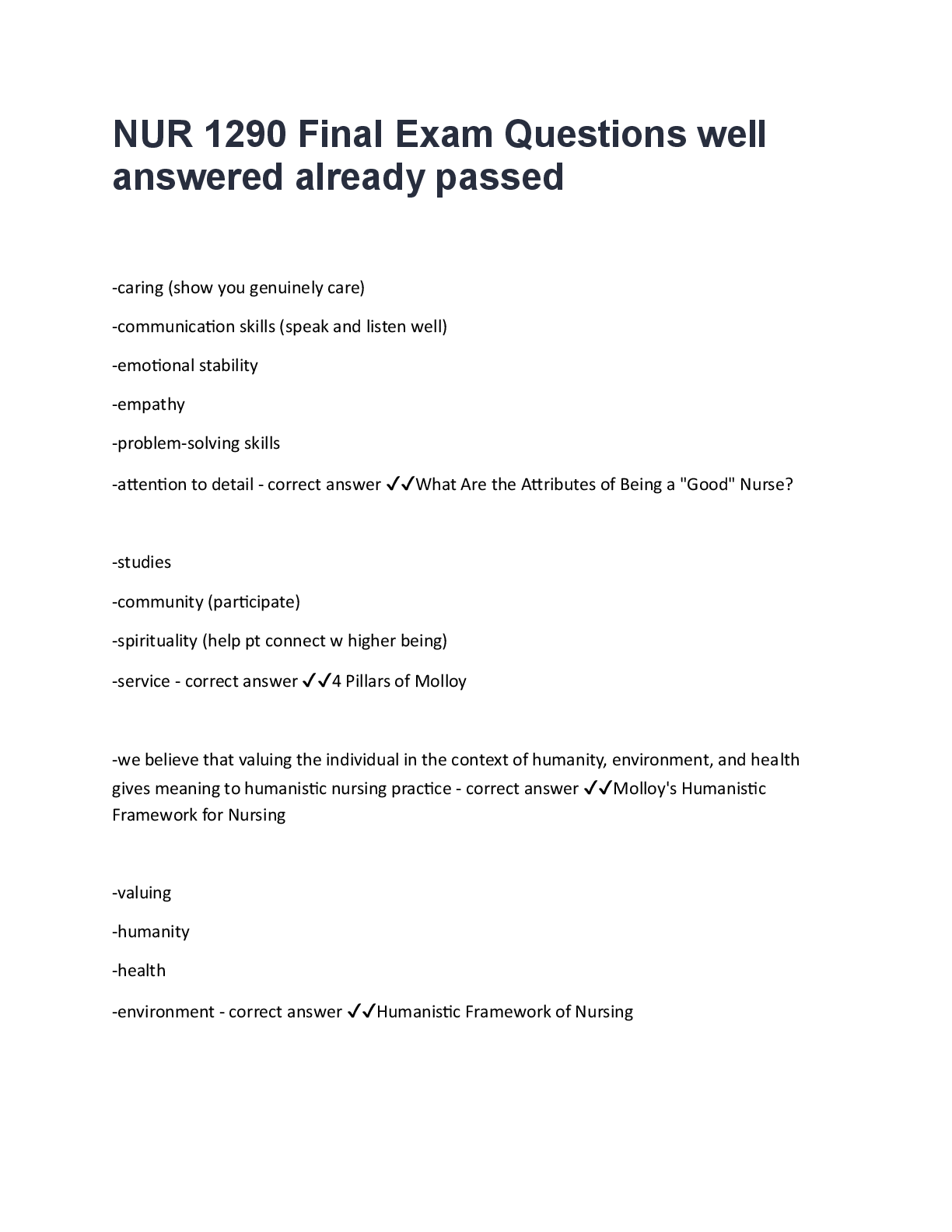
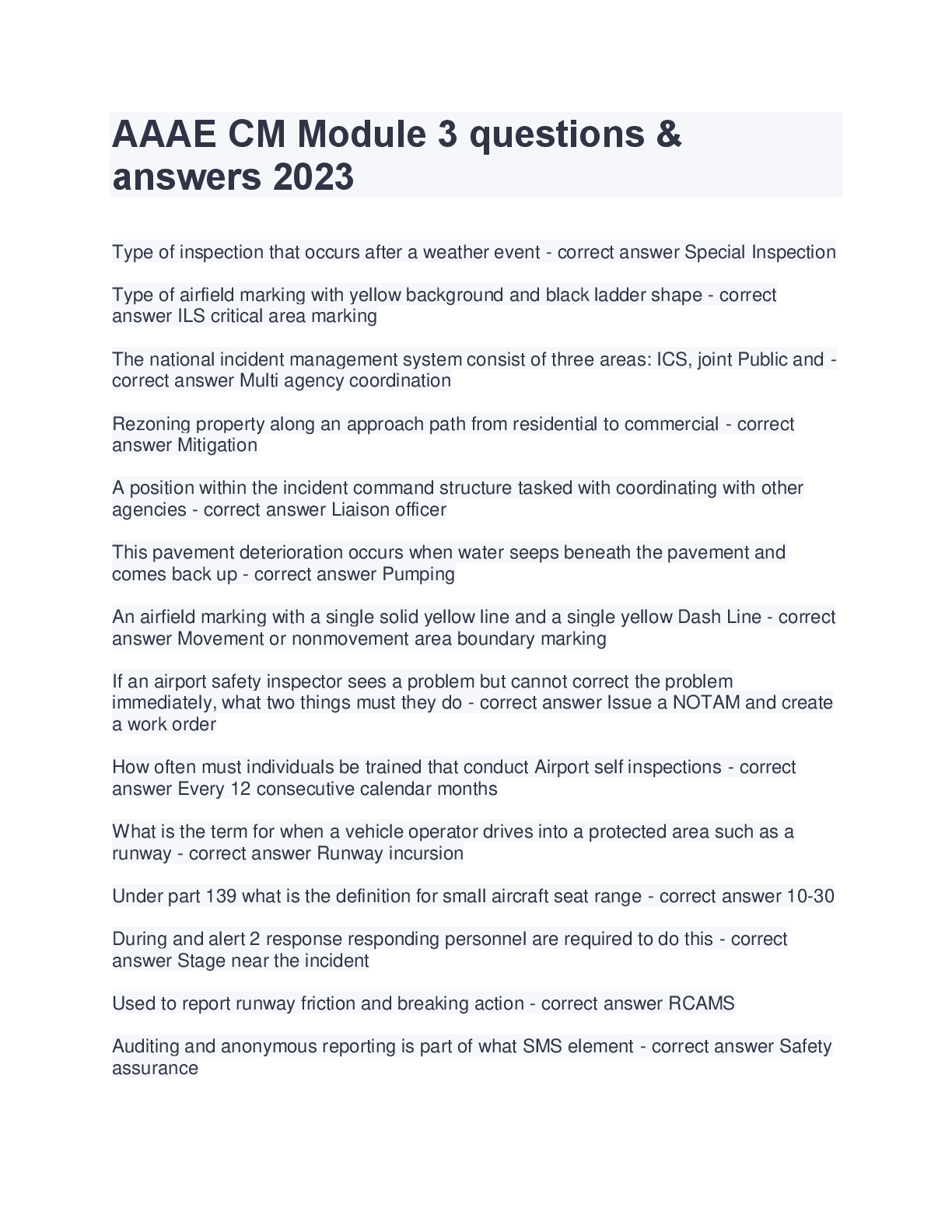
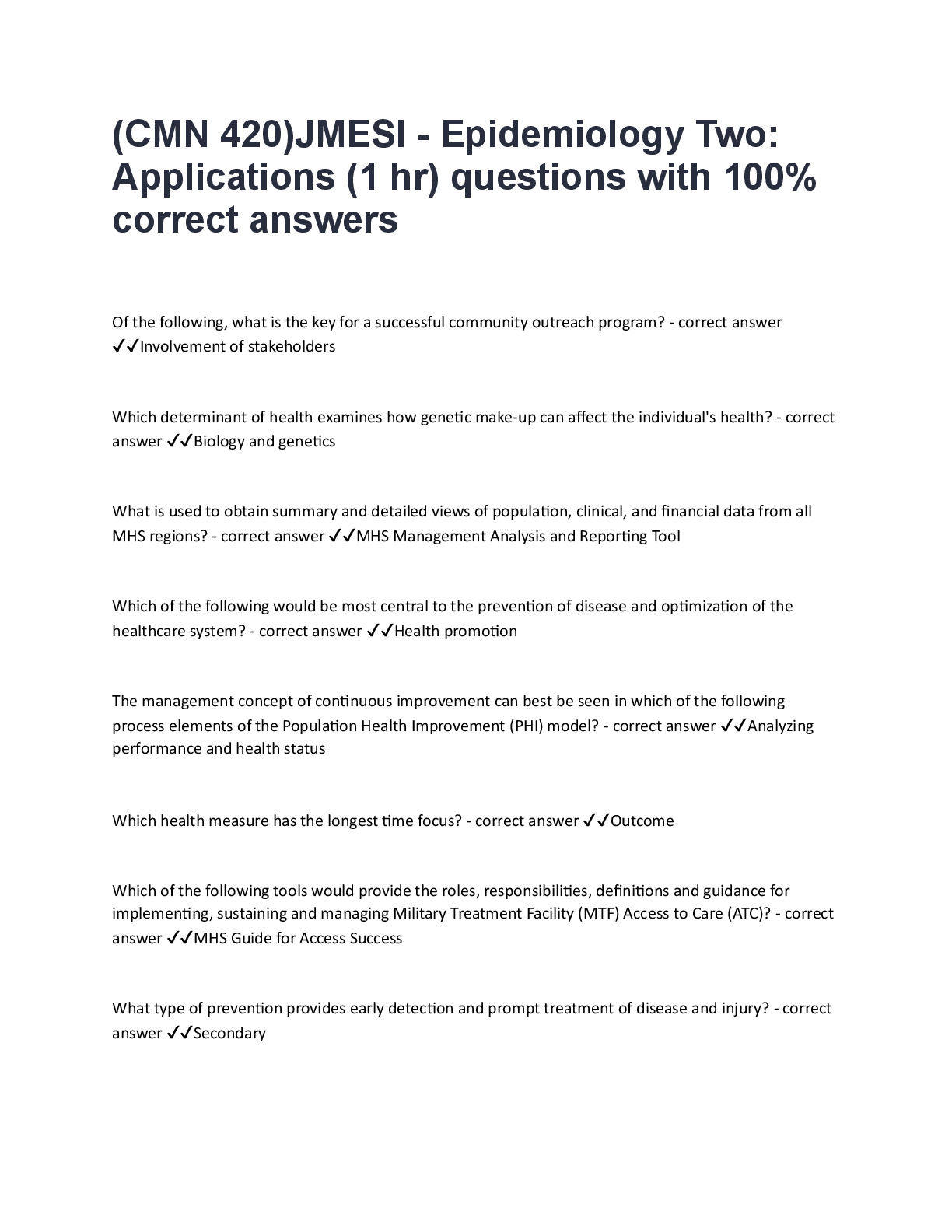
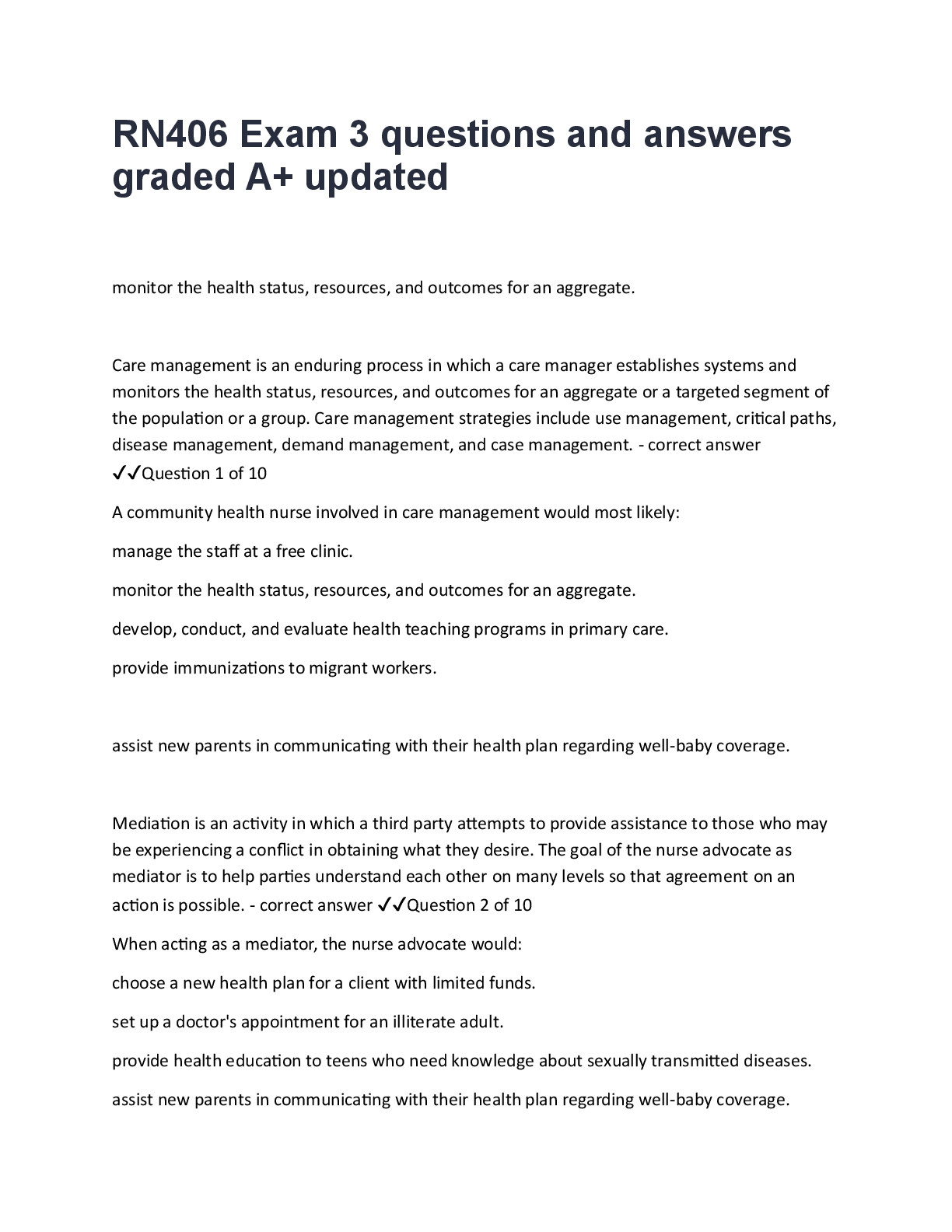


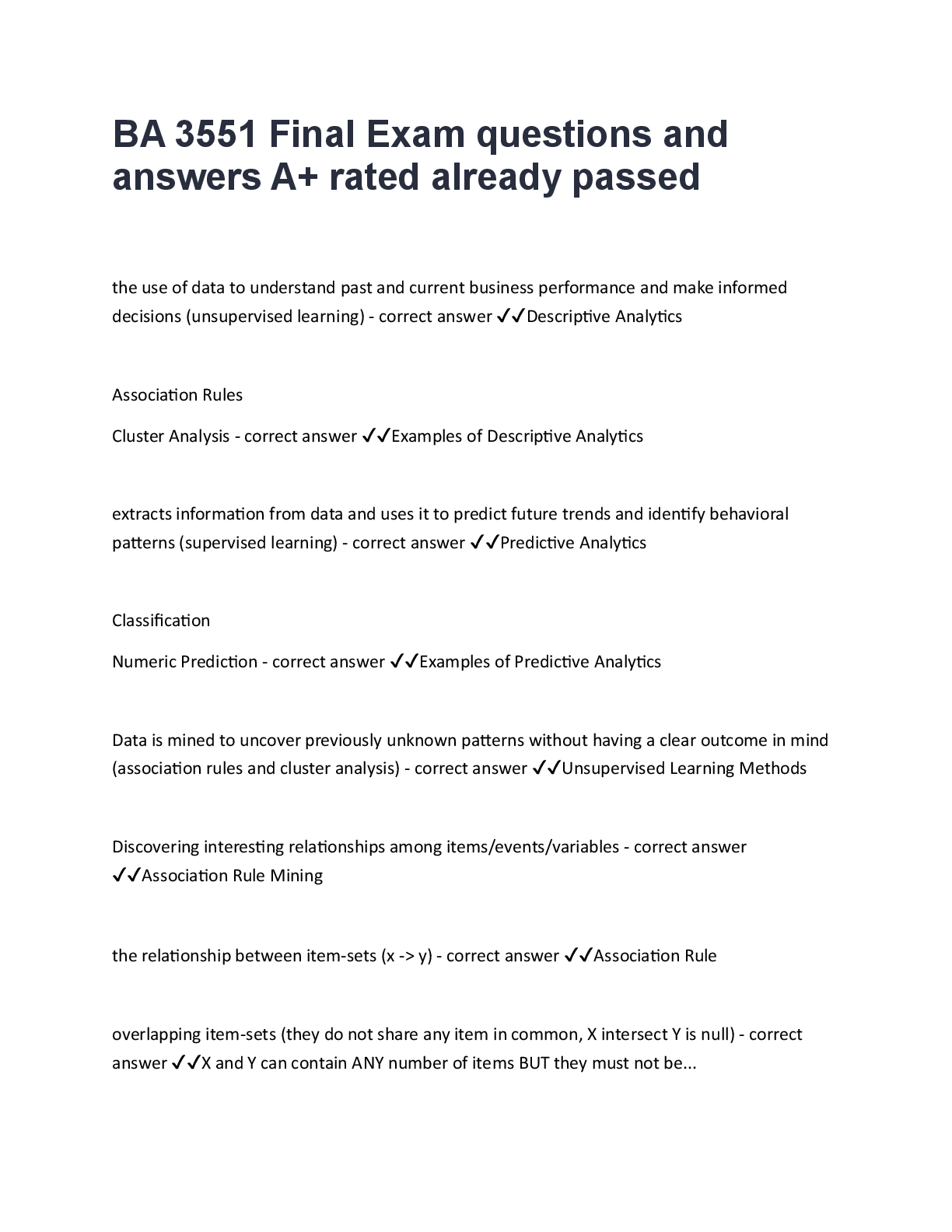
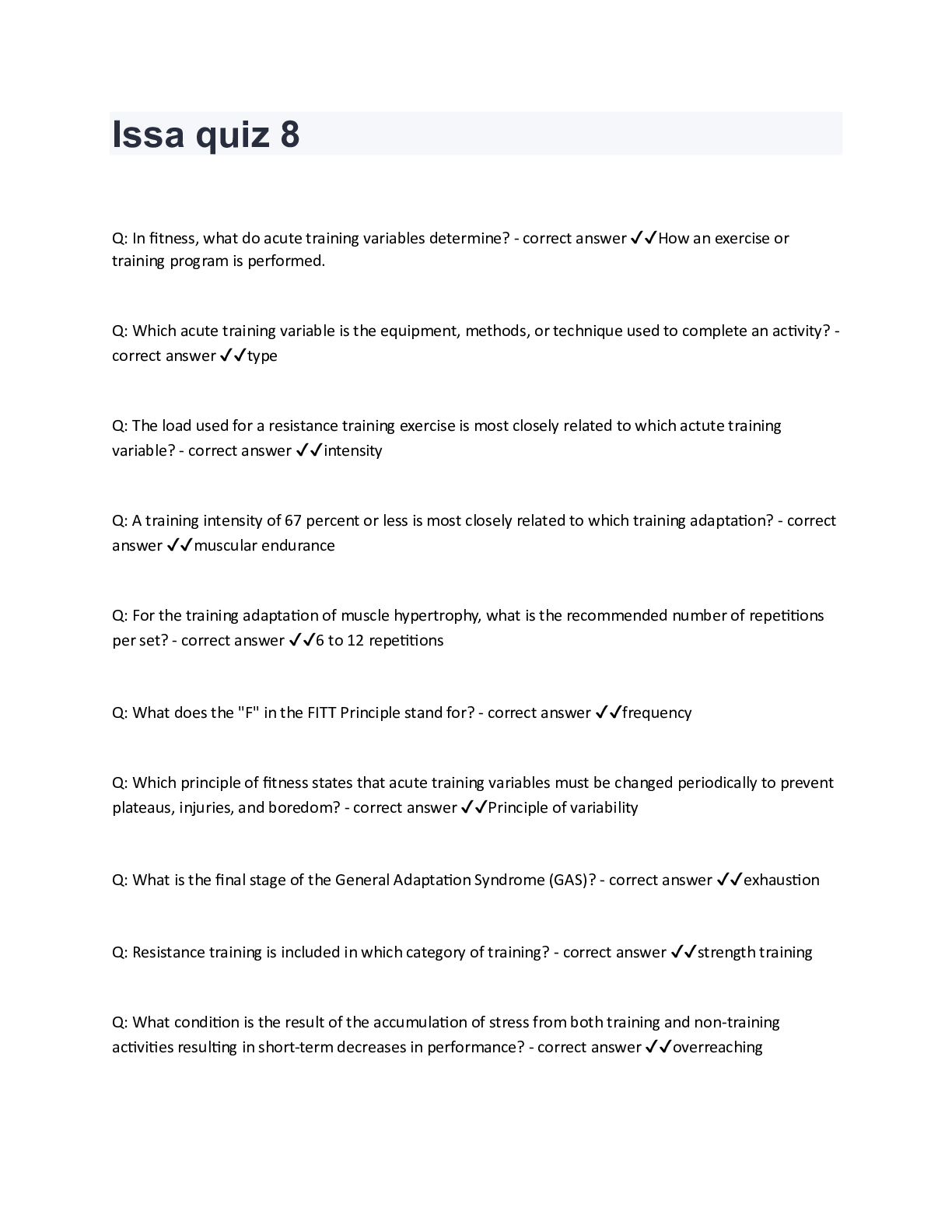
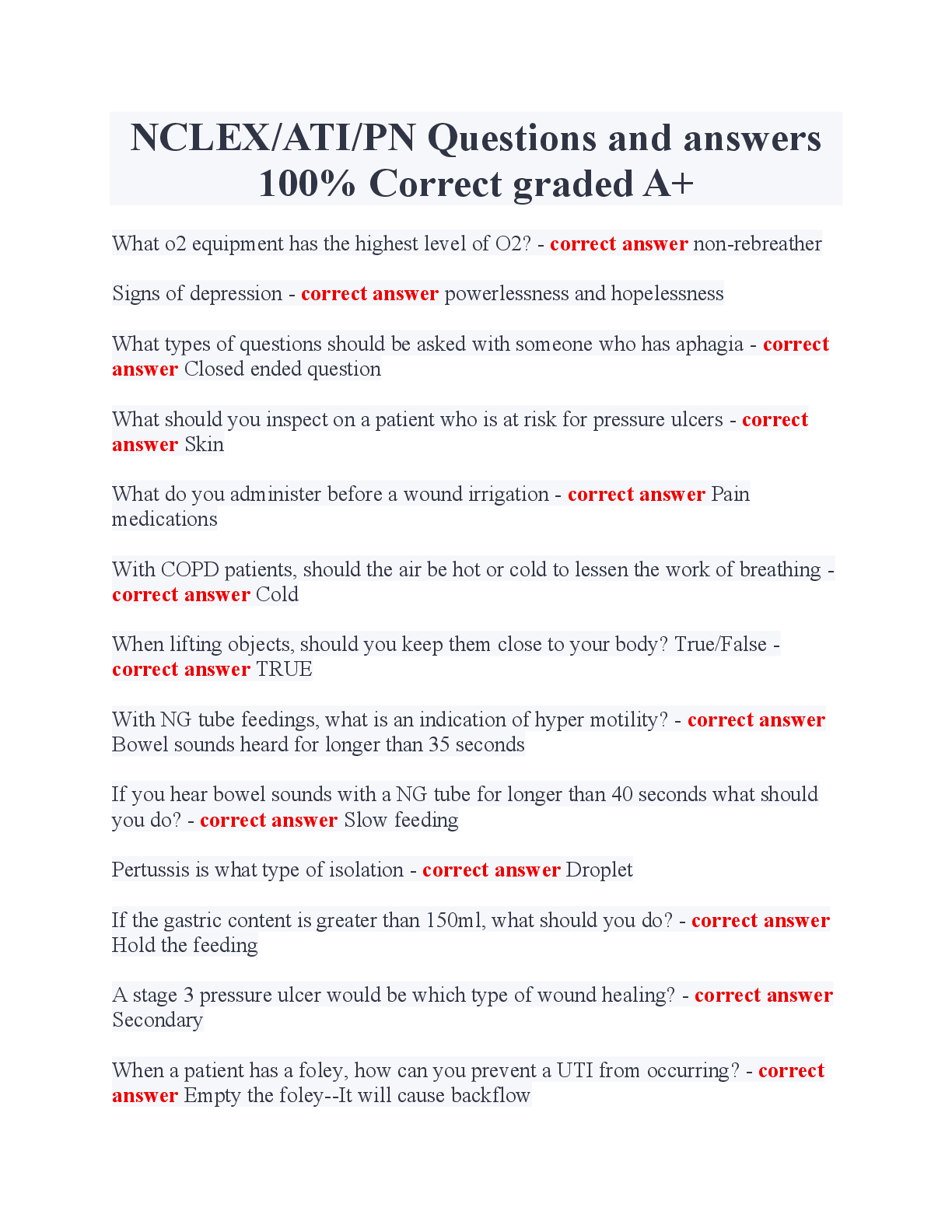


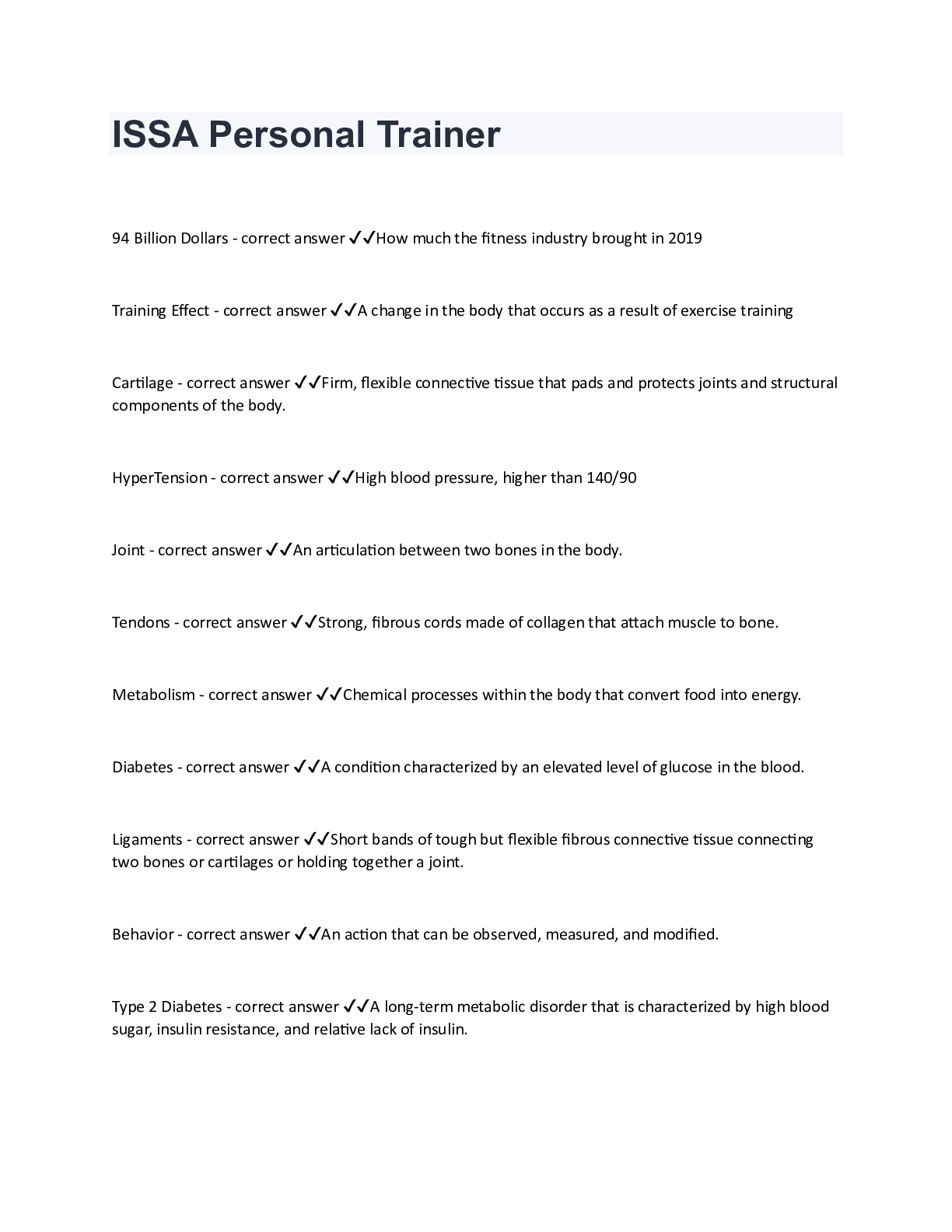

.png)

